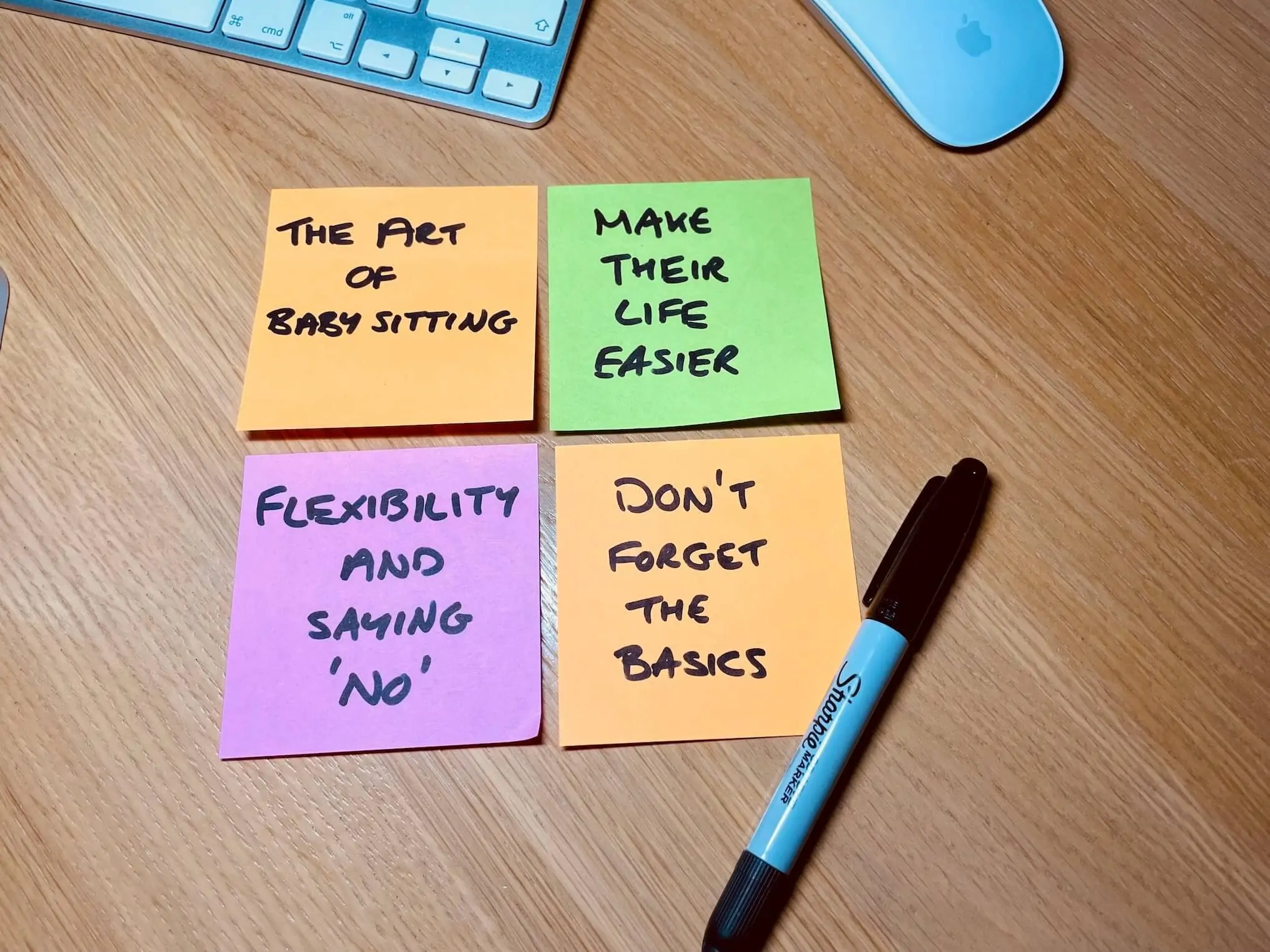The marketer’s job in a founder-led business is creative, strategic, commercial, hands-on, fast-paced. That’s what makes it amazing. More challenging and rewarding than the more formulaic roles in bigger, slower businesses. Right?
Yes, but… those bigger businesses have proven growth models. Departments full of specialists. Training programmes. Budget! Still, they’ve also got rules. And legions of people to get approval from. And legacy issues. And that’s why founder-led businesses are so much more attractive, especially to the entrepreneurial marketer.
Transitioning from a corporate to a founder-led business is a big shift. Easier for some than others. Here are some tips from my own personal experience that can help you not just survive, but thrive.
#1 Learn to be a babysitter
When we were teenagers, this was a good way to earn some pocket money. Look after their kids while they’re out. Don’t let anything bad happen. Don’t teach them bad language or how to play poker. They’re not your kids, but you are responsible for them for a while.
The role of the marketer in a founder-led business is very similar. This brand is their baby. They created it, nurtured it. They know it better than anyone else ever could. And they have a vision for its future. Your job as the babysitter is to look after the marketing of their brand for them, to help it realise its potential. Sometimes the founder will want you to help shape the future, but they aren’t looking for you to take over and adopt their baby.
This is very different in a corporate business where there isn’t a consistent brand owner. Instead, a succession of marketers pass the baton from one to the next and each adds a chapter in the story of the brand and takes full responsibility at the time.
So, to be a successful marketer in a founder-led business you need to learn to be a good babysitter and earn the trust of the founder. After all, it’s their baby.
#2 Make the founder’s life easier and get the best out of them
Founders have a million things on their mind: The brand, the product, the suppliers, the customers, the bank account, the investors, the employees…
Your job is to make their life easier by taking some of these concerns and actions off their hands, to do tasks that need specialist capability or knowledge they don’t have. You’re also there to do the tasks that they don’t have the time for, but still really need doing.
Earn their trust. Do even the smallest task really well. Think about what might be on their mind and start working on it before you get asked. Demonstrate that you have the best interests of the brand and business top of mind all the time.
And remember, all of those concerns and actions on the founder’s mind aren’t necessarily the things they enjoy doing or get energy from. So, make sure you are seeking the founder’s input on the subject areas you know they are really great at, the ones they enjoy. You’ll learn loads, and they’ll enjoy working with you.
#3 When to be flexible and when to say no
Flexibility is critical to the success of small entrepreneurial businesses. It’s what separates you from the slower corporates. You respond more quickly to customer feedback and new ideas, getting products and activities to market while corporates are still discussing them.
Being flexible is a skill. Some people are naturally good at it, able to switch between priorities with ease, getting satisfaction in the moment. Others find it hard because they like order and completion. You need to embrace flexibility in a smaller business.
But, flexibility in the absence of direction is actually just being indecisive or flighty. When flexibility turns into constant changes of direction that never realise their full potential, then it’s working against you. That’s when you say ‘no’. It’s not a word founders like to hear. So, you can’t just say no. You need to understand where the change to direction came from and why. Is it something that really does need to be prioritised, or is it a distraction?
Being flexible will help you to win in the market but you need to avoid becoming directionless and learn to how to say no, with skill.
#4 Don’t forget the basics
Founder-led businesses make a name for themselves by being creative, breaking rules and being more agile than the competition. These are some of the things that make the marketer’s role so much fun. But, don’t forget the basics. Have a clear plan, one that everyone can articulate. Have a way of measuring whether that plan is working. Have a clearly written brand proposition and personality that everyone agrees on. Make sure some of the basic elements of the marketing tool kit are in place.
None of these are sexy things to work on (or even priorities for some founders), but they keep working for you when you’re asleep! They mean customers get a consistently positive view of your brand. And they save you time, because they can be used again and again.
Add these skills to your toolkit and you can thrive
There are many skills that marketers need to develop to be successful. Some of the basics apply regardless of the size of business or type of culture you operate in. These 4 tips are just some of the additional skills you need to develop. Just remember; you’re a [super creative, strategic, commercial] babysitter whose job it is to make the founder’s life easier, showing competition-beating flexibility when needed and saying no to distractions, safe in the knowledge that all of those basics you put in place are working hard and giving you the time you need to do some amazing, rule-breaking, creative marketing.

